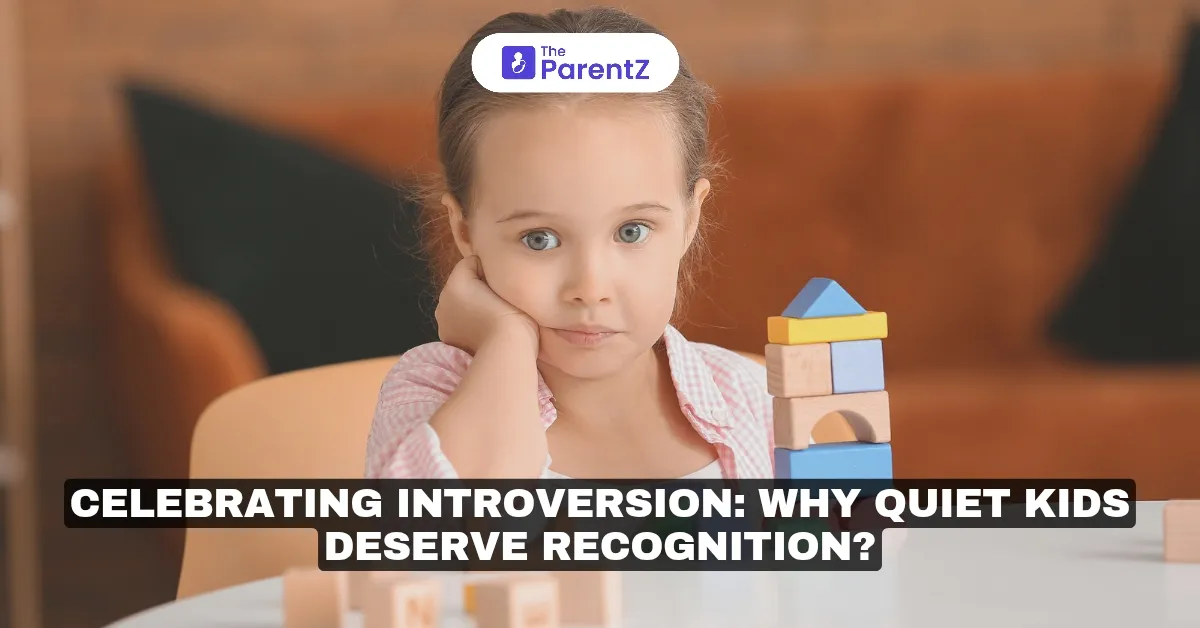You know that kid in class who rarely raises their hand but writes the most thoughtful essays? Or that child who prefers reading in a cozy corner during recess instead of joining the rowdy playground games? That's what we're talking about today – our wonderful, introverted children who process the world in their own unique way.
What Is Introversion?
Let's start with what introversion really is because there are so many misconceptions floating around. Introversion isn't shyness or social anxiety (though some introverted kids might also be shy). Instead, it's about how children recharge their energy and process the world around them. While extroverted kids gain energy from social interactions and external stimulation, introverted children recharge through quiet time and internal reflection.
The Energy Battery: A Simple Explanation
Think of it like this: if energy were a battery, extroverted kids charge up by plugging into social situations, while introverted kids need to unplug from the world to power up again. Neither way is better – they're just different paths to the same destination of being a happy, healthy child.
Consider Sarah, a quiet 10-year-old whose parents worried because she preferred spending lunchtime in the library rather than playing with large groups. But here's what they discovered: Sarah wasn't unhappy or lonely. In the library, she was creating incredible stories in her journal and forming one-on-one friendships with other bookworms. She was thriving in her own way.
What Introverted Children Want Parents to Know!
Parents, here's what your introverted child wants you to know but might not say out loud:
- When they come home from school and head straight to their room, they're not being antisocial. They're processing their day and recharging their batteries after hours of social interaction. This alone time is as essential to them as food or sleep.
- Their preference for having one or two close friends rather than a large social circle isn't a problem to fix. In fact, introverted people often form deeper, more meaningful friendships because they invest more energy in each relationship.
- That quiet thinking before answering questions isn't a sign of slowness – it's thoughtful processing. While some kids shoot their hands up immediately, introverted children like to turn ideas over in their minds, examining them from all angles before sharing their thoughts.
Supporting Your Introverted Child: Practical Steps
So, how can we celebrate and support our introverted children? Start by creating quiet spaces in your home where they can retreat when they need to recharge. This could be a reading nook, an art corner, or simply their bedroom – anywhere they can find peace when the world feels too loud.
Respect their need for processing time. If you've just announced a family vacation, don't expect immediate excitement. Give them time to process the change and come to terms with it in their own way. Their delayed reaction doesn't mean they're any less excited – they're just processing internally first.
Validate their way of being. Instead of saying things like "Why don't you join the others?" or "Try to be more outgoing," try "I notice you really enjoy drawing by yourself," or "Tell me about the story you're writing." Show them that their natural inclinations are valuable and worthy of recognition.
Remember, some of history's most impactful people were introverts – from Albert Einstein to Rosa Parks. These individuals changed the world not by being the loudest in the room but by deeply observing, thinking, and acting with purpose.
For a better understanding of this topic, the article "Raising Introverted Children: Understanding and Supporting Them" offers valuable insights into nurturing these thoughtful young minds.
Celebrating the Quiet Strength
Our introverted children have rich inner worlds filled with creativity, deep thoughts, and incredible potential. They notice details others miss, feel emotions deeply, and often demonstrate remarkable empathy. These qualities aren't weaknesses to overcome but strengths to nurture.
The next time you see a quiet child lost in thought, remember they're not just daydreaming – they're processing, creating, and understanding the world in their own beautiful way. And that deserves not just acceptance but celebration.
Conclusion
Celebrating introversion is about recognizing the unique qualities that quiet kids bring to the table. By understanding and supporting their needs, we can help introverted children thrive in a world that often favors extroversion.
To all the parents of introverted children: your quiet ones are perfectly fine, just as they are. They don't need fixing or changing. They need understanding, support, and the freedom to be themselves. In a world that often celebrates the loudest voices, let's make space for the quiet ones, too. After all, still waters run deep.





Be the first one to comment on this story.